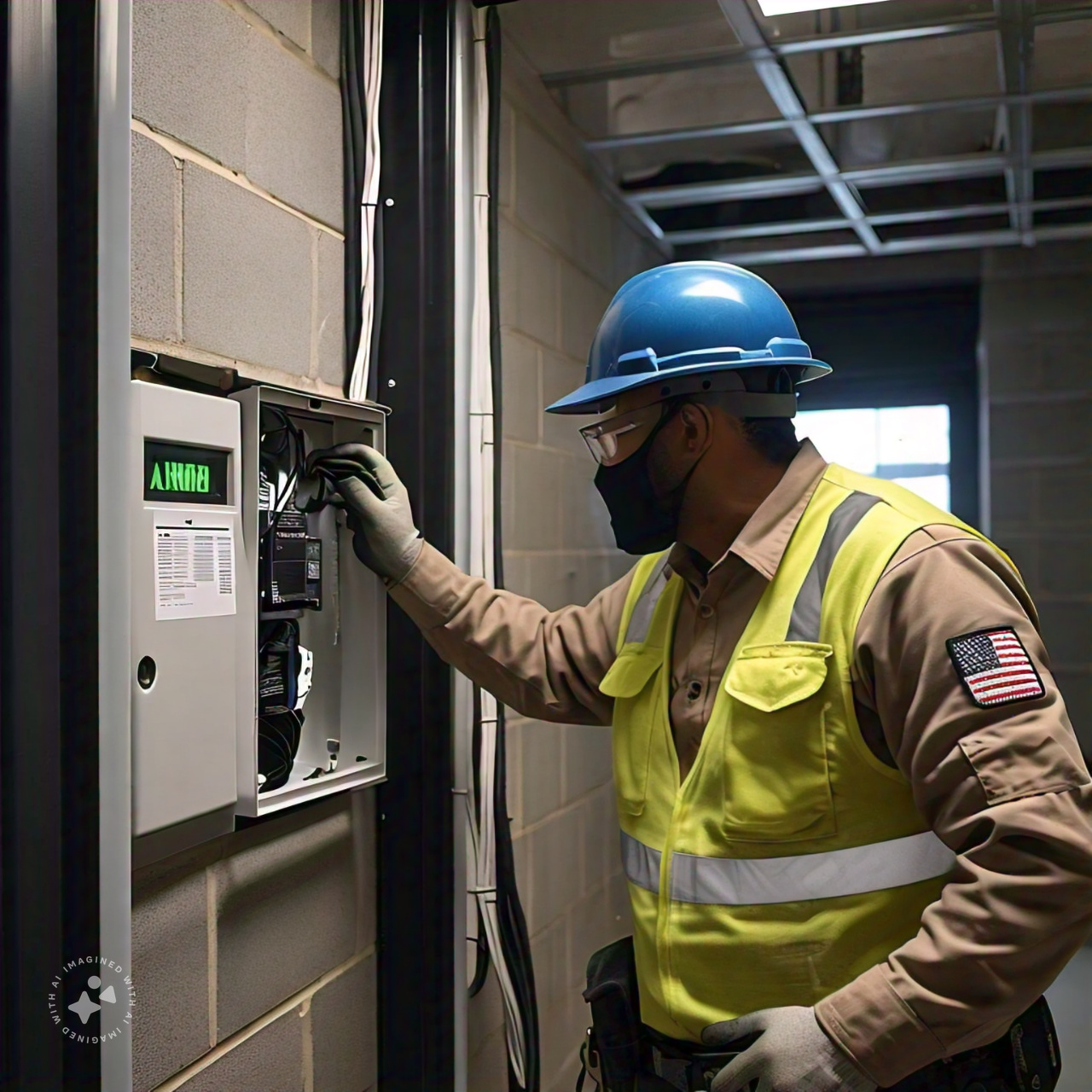Your business premises security is key. A good burglar alarm can be a big deterrent to would be burglars, protect your assets and your staff.
Choosing from all the options out there can be overwhelming, which is why choosing the right provider like Easy Security Systems is so important. This article is here to help you with what to look for in a business burglar alarm.
1. Types of Intruder Detection Systems
First of all you need to know the types of burglar alarms:
Wired systems are the traditional systems that use actual wires to connect sensors to the control panel. They are reliable but installation and maintenance can be a pain.
Wireless systems use radio frequencies to communicate between sensors and control panel. They are easier to install and more flexible but need battery changes and can be prone to signal interference.
Hybrid systems combine components from both wired and wireless systems, a good solution.
2. Detection methods
Multiple detection methods can be used in burglar alarms and the right combination is crucial:
Motion detectors are sensors that detect movement in a specific area. They can use infrared, microwave or ultrasonic technology to detect and sense movement.
Door and Window Sensors: These sensors trigger the alarm when a door or window is opened unexpectedly. Magnetic switches are commonly used.
Glass break sensors detect the sound or vibration of broken glass. Suitable for businesses with large window fronts.
Shock sensors detect the vibrations from attempts to break walls, doors or windows.
Panic buttons allow staff to manually trigger the alarm in an emergency, so response is quick.
3. Control Panel features
The control panel is the brain of your burglar alarm system. Consider:
User Interface: A simple interface is key. Touchscreen panels are user friendly and intuitive.
Remote Access: Remote access means the system can be controlled and monitored via a smartphone app or online portal.
Integration: Ability to integrate with other security systems (CCTV and access control) adds to overall security.
4. Alarm Monitoring Services
Monitoring services provides an extra layer of protection by monitoring your system 24/7.
Self-Monitoring: You are notified of alerts and notifications so you can respond quickly.
Professional Monitoring: An external agency monitors your alarm system and can send the authorities if needed. Gives you peace of mind and quick response.
5. Reducing False Alarms
False alarms can be costly and annoying. Features that help reduce false alarms:
Pet-Immune Sensors: These sensors are designed to ignore pet movement so reducing the chance of false alarms.
Dual-Technology Sensors: Two technologies in one sensor, PIR and microwave, to reduce false triggers.
Geofencing: This feature uses the GPS of your smartphone to enable or disable the system so human error is minimised.
6. Easy to expand, scale up and customise to your needs.
Your burglar alarm system must be able to expand and adapt to your business.
Scalable Systems: Ensure the system can add more sensors and devices as your business grows.
Customisable Settings: Customise settings for different areas or times of the day to increase security and reduce false alarms.
7. Environmental Sensors
Environmental sensors will protect your business from more than just intruders:
Smoke Detectors: Add smoke detectors to notify you of fires and reduce damage.
Carbon Monoxide Detectors: These devices can detect hazardous CO levels so protect staff and customers from poisoning.
Flood Sensors: Flood sensors can detect water breaches and prevent costly flood damage.
8. System Maintenance and Support
System maintenance and support is key to keeping your system working.
Service Contracts: Consider a service contract that includes regular maintenance and priority repairs.
Customer Support: Check if the company provides 24/7 customer support for issues and assistance.
9. Compliance
Make sure your burglar alarm system meets the local regulations and requirements. This varies depending on your location and industry.
10. Cost Factors
While cost shouldn’t be the only deciding factor, you need to find a balance between quality and price.
Initial Cost: Consider the upfront cost of the system including installation cost.
Recurring Cost: Consider monthly monitoring fees, maintenance fees and upgrade costs.
11. Brand reputation and customer reviews.
Research the reputation of different companies and read customer reviews:
Brand Reliability: Choose a brand that’s known for its reliability and secure solutions.
Customer Feedback: Reviews will give you an idea of recurring issues and customer service quality.
Conclusion
Choosing the right security system for your business requires careful consideration of several factors – system type, detection methods, monitoring services and scalability. By knowing your specific security needs and evaluating the points above, you can make an informed decision to secure your premises. Getting a comprehensive and reliable burglar alarm system is a must to protect your assets, staff and peace of mind.







